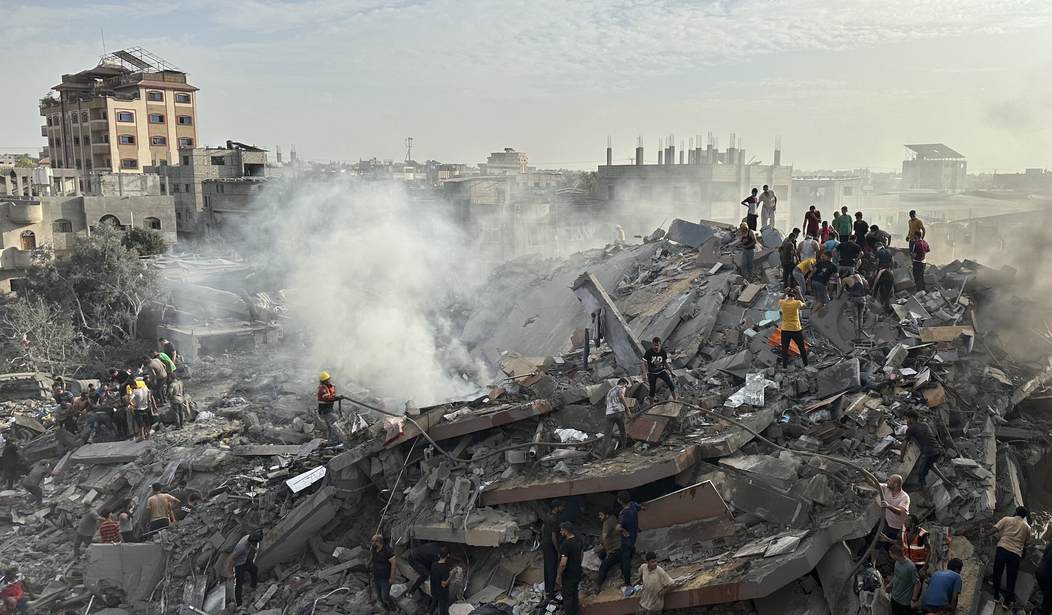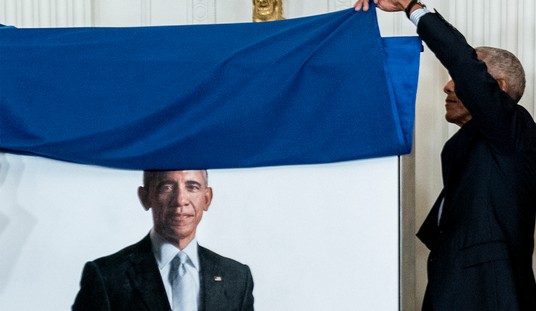Joe Biden was on the campaign trail on Wednesday when a heckler urged him to call for a cease-fire. "I think we need a pause," he replied, saying that it would allow for hostages to get out.
Just like that, a major policy decision by the U.S. government was announced — during a political speech and in response to a question from a heckler.
Egypt, Qatar, and the U.S. have been negotiating with Hamas and Israel to allow dual nationals and injured Palestinians to leave Gaza. At least 400 Americans left Gaza City on Thursday with more in line to be allowed to leave on Friday.
But what about this "pause"? Israeli Prime Minister Benjamin Netanyahu has repeatedly rejected any idea of a cease-fire or a "pause" in the fighting. But now, with the U.S. pushing Israel for a humanitarian pause, it will be hard for Netanyahu to completely blow off the idea.
White House officials said a pause in fighting would allow for more aid to be sent in and potentially facilitate the release of hostages. U.S. Secretary of State Antony Blinken is expected back in the region on Friday.
The departure of Palestinians through the Rafah crossing into Egypt on Wednesday came after weeks of talks. It was first time people left Gaza other than four hostages released by Hamas and another rescued by Israeli forces. Israel has also allowed more than 260 trucks carrying food and medicine through the crossing, but aid workers say it’s not nearly enough.
Hamas is not going to release any hostages until their release can aid their military situation. That means an extended cease-fire with prolonged, agonizing negotiations. Biden is either delusional about a "pause" in facilitating hostage releases or he's just ignorant.
Secretary of State Antony Blinken is set to leave for another round of Middle East diplomacy as he heads for Israel and Jordan. But his trip this time has been complicated by Arab-Hamas propaganda and domestic opposition from Biden's left flank.
He’ll push for the evacuation of more foreigners from Gaza and more humanitarian aid for the territory. He’ll press Israel to rein in violence against Palestinians in the West Bank committed by Jewish settlers. And, he’ll stress the importance of protecting civilians. The administration has refrained, however, from offering any criticism of Israel for strikes that Hamas, in unverified claims, says have killed thousands of civilians in Gaza.
So, while calling for brief pauses in airstrikes and fighting for humanitarian purposes, he will continue to oppose growing calls for a broader ceasefire. On Wednesday, US President Joe Biden said he thought there should be a humanitarian “pause” in the Israel-Hamas war to get “prisoners” out.
Blinken will also be introducing a new element to the US list of priorities: the need for Israel and its neighbors to begin to consider what a post-conflict Gaza will look like, who will govern it, how it can be made secure and how to establish an independent Palestinian state.
Egypt wants nothing to do with Gaza or the Palestinians. They've been there and done that and will studiously ignore Blinken if, as expected, the secretary seeks Egypt's help in taking in refugees.
And trying to create some kind of armed UN peacekeeping mission will have few takers — especially in the region. In short, Blinken and the Israelis are going to have to ram some kind of post-war solution down the throats of the Palestinians.
They're guaranteed not to like it, which will lead to more armed resistance.










Join the conversation as a VIP Member